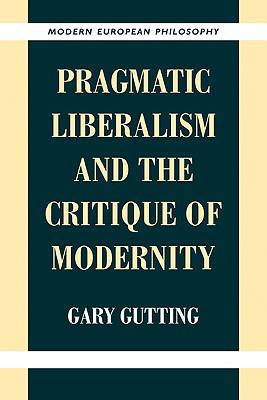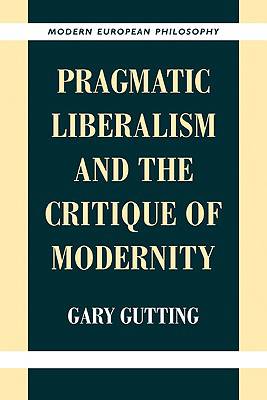
Door een staking bij bpost kan je online bestelling op dit moment iets langer onderweg zijn dan voorzien. Dringend iets nodig? Onze winkels ontvangen jou met open armen!
- Afhalen na 1 uur in een winkel met voorraad
- Gratis thuislevering in België vanaf € 30
- Ruim aanbod met 7 miljoen producten
Door een staking bij bpost kan je online bestelling op dit moment iets langer onderweg zijn dan voorzien. Dringend iets nodig? Onze winkels ontvangen jou met open armen!
- Afhalen na 1 uur in een winkel met voorraad
- Gratis thuislevering in België vanaf € 30
- Ruim aanbod met 7 miljoen producten
Zoeken
Omschrijving
In this book Gary Gutting offers a powerful account of the nature of human reason in modern times. The fundamental question addressed by the book is what authority human reason can still claim once it is acknowledged that our fundamental metaphysical and religious pictures of the world no longer command allegiance. Gutting analyzes the work of three dominant philosophical voices in our time: Richard Rorty, Alasdair MacIntyre, and Charles Taylor. His own position is defined as "pragmatic liberalism." The book will appeal to readers in such fields as philosophy, literature, and political theory. The interpretations of Rorty, MacIntyre, and Taylor will make the book suitable as a coursebook for those teaching the history of modern philosophy.
Specificaties
Betrokkenen
- Auteur(s):
- Uitgeverij:
Inhoud
- Aantal bladzijden:
- 212
- Taal:
- Engels
- Reeks:
Eigenschappen
- Productcode (EAN):
- 9780521649735
- Verschijningsdatum:
- 13/02/1999
- Uitvoering:
- Paperback
- Formaat:
- Trade paperback (VS)
- Afmetingen:
- 153 mm x 228 mm
- Gewicht:
- 303 g

Alleen bij Standaard Boekhandel
+ 167 punten op je klantenkaart van Standaard Boekhandel
Beoordelingen
We publiceren alleen reviews die voldoen aan de voorwaarden voor reviews. Bekijk onze voorwaarden voor reviews.











